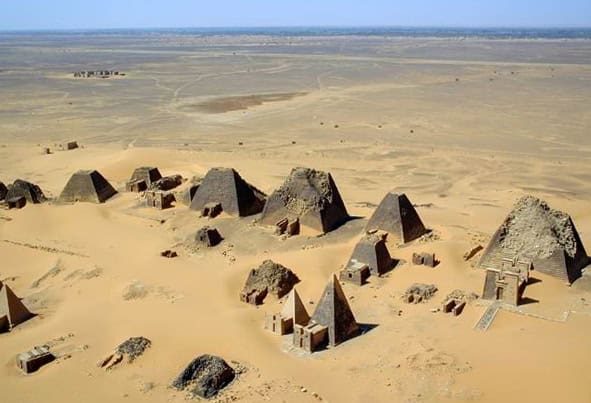The Kingdom of Kush was a powerful civilization that thrived in ancient Nubia, present-day Sudan. This African kingdom existed for over a thousand years and left a lasting impact on the region. From their impressive architecture to their advanced military tactics, the Kingdom of Kush was a force to be reckoned with.
This listicle will explore six reasons why the Kingdom of Kush was such a formidable civilization. From their innovative use of resources to their strategic location along the Nile River, the Kushites established a thriving empire that rivaled even the mighty Egyptians.
Join us as we delve into the rich history of the Kingdom of Kush and uncover the secrets behind its success. From its powerful rulers to its impressive cultural achievements, the Kushites left behind a legacy that continues to fascinate historians and archaeologists to this day.

1. Strategic Location
The Kingdom of Kush was strategically located along the Nile River in modern-day Sudan. This location allowed the Kushites to control trade routes and quickly access resources such as gold, ivory, and ebony. The Nile also provided fertile land for agriculture, which helped the kingdom thrive.
2. Powerful Military
The Kushites had a powerful military that was feared by neighboring civilizations. They were skilled archers and had strong cavalry units. The Kushite army conquered and expanded their territory, establishing themselves as a dominant force in the region.
3. Wealth and Resources
The Kingdom of Kush was rich in resources such as gold, which they mined from the nearby Nubian Desert. This wealth allowed the Kushites to build impressive monuments and structures, showcasing their power and influence. They also traded with other civilizations, further increasing their wealth.
4. Advanced Civilization
The Kushites were an advanced civilization with sophisticated architecture and engineering skills. They built pyramids, temples, and palaces that rivaled those of ancient Egypt. The Kushites also had a system of writing known as Meroitic script, which has yet to be fully deciphered.
5. Cultural Influence
The Kingdom of Kush had a rich cultural heritage that influenced other civilizations in the region. They adopted many aspects of Egyptian culture, such as religion and art, while also maintaining their own unique traditions. The Kushites were known for their skilled craftsmanship, particularly in pottery and jewelry.
6. Trade and Diplomacy
The Kushites were skilled traders and diplomats, establishing trade networks with civilizations as far away as Rome and India. They exchanged goods such as gold, ivory, and slaves for luxury items like silk and spices. The Kingdom of Kush also formed alliances with other kingdoms to strengthen their position in the region.
Conclusion
The Kingdom of Kush left a lasting legacy in the region, influencing later civilizations such as the Kingdom of Aksum. However, the kingdom eventually declined due to invasions from other civilizations, internal conflicts, and the rise of new powers in the region. Despite its eventual downfall, the Kingdom of Kush remains an important and powerful civilization in ancient history.



